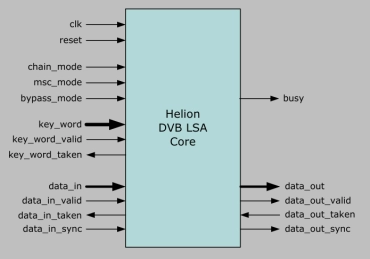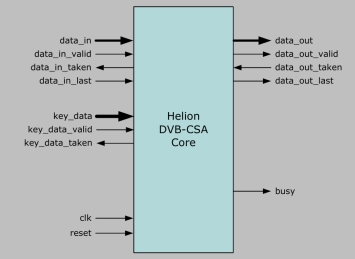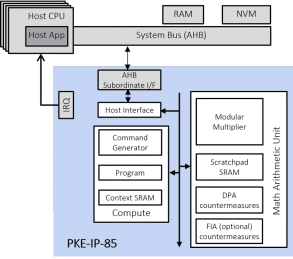DPA and FIA Countermeasures IP
Differential power analysis (DPA) is the use of power monitoring techniques to discover and interpret the cryptographic mechanisms within a silicon device. DPA and FIA Countermeasures IP incorporate several countermeasures to make DPA attacks more difficult to execute.
All offers in
DPA and FIA Countermeasures IP
Filter
Compare
4
DPA and FIA Countermeasures IP
from
2
vendors
(1
-
4)
-
DVB Local Scrambling Algorithm Core
- The Helion DVB LSA Scrambler and Descrambler cores implement the Local Scrambling Algorithm as specified to provide MPEG-2 Transport Stream packet security within DVB Content Protection and Copy Management (DVB-CPCM) compliant systems.
- Both cores provide all operations required to scramble or descramble MPEG-2 TS packets, including IV generation using either MSC Data Independent (MDI) or MSC Data Dependent (MDD) mode, and payload protection using either AES-CBC or AES-RCBC cipher chaining modes.

-
Common Scrambling Algorithm IP core
- The Helion DVB-CSA cores implement the ETSI specified Common Scrambling Algorithm (CSA) which is used to provide the conditional access mechanism for MPEG-2 video streams for use in Pay-TV systems adopted by Digital Video Broadcasting (DVB) consortium.
- It has also been specified by the European Broadcasting Union (EBU) for use within Digital Satellite News Gathering (DSNG) applications, where it provides data security within the Basic Interoperable Scrambling System (BISS) Mode 1 and Mode E specifications.

-
Fast Public Key Engine with DPA or with DPA and FIA
- The SCA-resistant PKE-IP-85 family of Public Key Engine cores provide semiconductor manufacturers with superior public key cryptography acceleration.
- The cores are easily integrated into ASIC/SoC and FPGA devices, offer a high-level of resistance to Differential Power Analysis (DPA), and, optionally, offer detection of Fault Injection Attacks (FIA).

-
DPA Resistant Software Library
- Library implements a very high-security primitives for AES, ECC, RSA, and SHA
- Supported platforms: ARM Cortex-A9, ARM7TDMI, and others
- AES supports 128/192/256-bit encrypt and decrypt
- ECC supports ECDSA/ECDH for NIST prime fields (192/256/384/521)